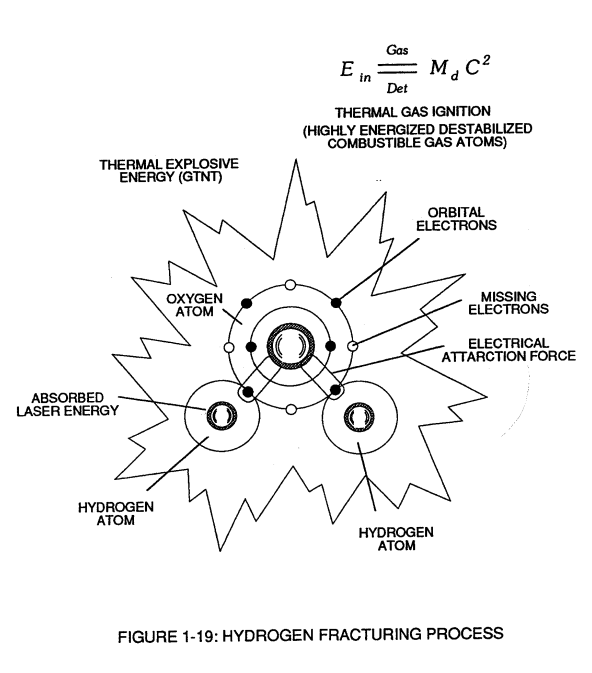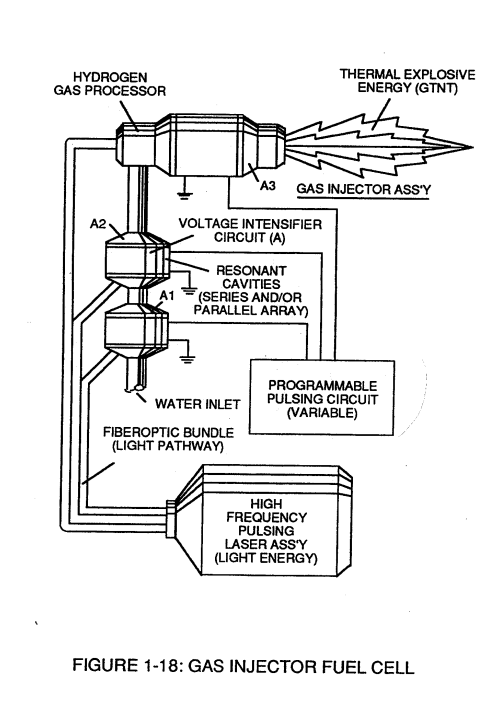| Figure (1-19) [](https://stanslegacy.com/uploads/images/gallery/2023-12/KjUivZrfBcdhGK1e-image-1703011886920.png) | Figure (1-18) [](https://stanslegacy.com/uploads/images/gallery/2023-12/LhvbL7jb5G8yJdXG-image-1703011873784.png) |
**Thermal Atomic interaction** (gmt) is caused when the combustible gas ions (from water) fail to unite or form a **Covalent Link-up** or **Covalent Bond** between the water molecule atoms as illustrated in Figure (1-19).
The oxygen atom having less than four covalent electrons (**Electron Extraction Process**) is unable to reach "**Stable-State**" (*six to eight covalent electrons required*) when the two hydrogen atoms seek to form the water molecule during thermal gas ignition.The absorbed **Laser** energy (Va, Vb and Vc) weakens the "**Electrical Bond**" between the orbital electrons and the nucleus of the atoms; while, at the same time, **electrical attraction-force** (qq'), being stronger than "Normal" due to the lack of covalent electrons, "**Locks Onto**" and "**Keeps**" the hydrogen electrons.
These “**abnormal**” or “**unstable**” conditions cause the combustible gas ions to **over compensate** and **breakdown** into **thermal explosive energy** (gmt).
This **Atomic Thermal-Interaction** between highly energized combustible gas ions is hereinafter called "**The Hydrogen Fracturing Process**."By simply **attenuating** or **varying voltage amplitude** in direct relationship to **voltage pulse-rate** determines **Atomic Power-Yield** under controlled state.